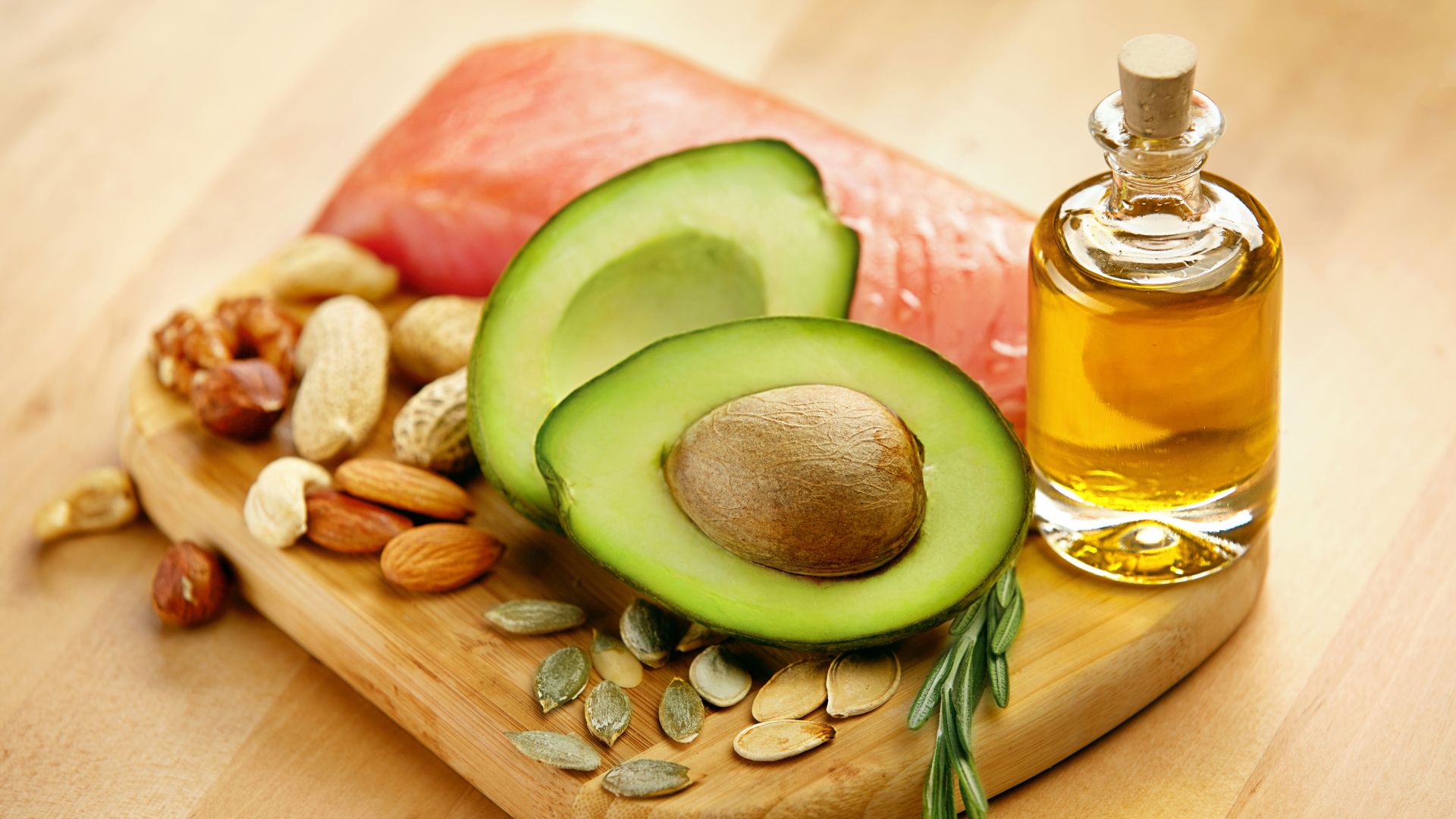Fats have long been vilified in popular diets, but emerging nutritional science emphasizes the importance of distinguishing between healthy and unhealthy fats. In recent years, the focus has shifted toward understanding healthy fats and their role in promoting overall health and well-being. Let’s explore what healthy fats are, why they are essential, and how to incorporate them into your diet for optimal health.
Defining Healthy Fats
Healthy fats, also known as unsaturated fats, are essential macronutrients that play crucial roles in the body’s functioning. Unlike saturated fats and trans fats, which can lead to negative health outcomes when consumed in excess, healthy fats support various bodily processes and offer numerous health benefits.
Types of Healthy Fats Include:
- Monounsaturated Fats: Found in foods such as olive oil, avocados, nuts (like almonds, peanuts, and pecans), and seeds (such as pumpkin and sesame seeds). These fats are known for their heart-protective benefits and may help lower LDL (bad) cholesterol levels.
- Polyunsaturated Fats: These fats include omega-3 and omega-6 fatty acids, which are essential because the body cannot produce them on its own. Sources of polyunsaturated fats include fatty fish (like salmon, mackerel, and sardines), flaxseeds, chia seeds, walnuts, and soybean oil. Omega-3 fatty acids are particularly renowned for their anti-inflammatory properties and role in brain health.
Understanding Healthy Fats in Your Diet
Nutrient Absorption: Certain vitamins (A, D, E, and K) are fat-soluble. Your body needs fats to absorb and utilize these vital nutrients effectively.
Heart Health: Consuming healthy fats instead of saturated and trans fats can improve cholesterol levels, reduce inflammation, and lower the risk of heart disease and stroke.
Brain Function: Omega-3 fatty acids, in particular, are crucial for brain development and function. They are linked to better cognitive function, memory retention, and mood regulation.
Energy and Satiety: Fats provide more than twice the calories per gram compared to carbohydrates and proteins. Including healthy fats in meals can help provide sustained energy and promote feelings of fullness.
Incorporating into Your Diet
Incorporating healthy fats into your diet doesn’t have to be complicated. Here are some practical tips to increase your intake of these beneficial nutrients:
- Cook with Healthy Oils: Use oils like olive oil, avocado oil, and canola oil for cooking and dressing salads. These oils are rich in monounsaturated fats.
- Add Nuts and Seeds: Snack on a handful of almonds, walnuts, or pumpkin seeds. These provide a satisfying crunch along with healthy fats, fiber, and protein.
- Eat Fatty Fish Regularly: Aim to include fatty fish like salmon, trout, or sardines in your diet at least twice a week to benefit from omega-3 fatty acids.
- Use Avocado Liberally: Spread avocado on toast, add slices to salads, or blend it into smoothies for a creamy texture and a dose of healthy monounsaturated fats.
Summary: Sources of Healthy Fats and Their Benefits
| Food Source | Type of Healthy Fat | Key Benefits |
|---|---|---|
| Olive oil | Monounsaturated fat | Lowers LDL cholesterol, supports heart health |
| Avocados | Monounsaturated fat | Aids nutrient absorption, promotes satiety |
| Almonds & walnuts | Mono & polyunsaturated fats | Boosts heart and brain health, provides fiber |
| Fatty fish (salmon) | Omega-3 polyunsaturated fat | Reduces inflammation, enhances brain function |
| Flaxseeds & chia seeds | Omega-3 polyunsaturated fat | Provides plant-based omega-3s, supports digestion |
| Pumpkin & sesame seeds | Monounsaturated fat | Rich in nutrients, promotes healthy skin |
| Soybean oil | Polyunsaturated fat | Helps maintain cholesterol balance |
Conclusion
As nutritional research evolves, so does our understanding of fats and their impact on health. Embracing healthy fats as part of a balanced diet is crucial for overall well-being. These fats offer benefits that extend beyond just their calorie content. By choosing sources of monounsaturated and polyunsaturated fats, you support heart health, enhance nutrient absorption, and promote optimal brain function.
Next time you plan your meals, consider the role of fats in providing flavor, texture, and nutritional value. By incorporating a variety of healthy fats into your diet, you not only diversify your culinary experiences but also take significant steps toward improving your long-term health. Let understanding healthy fats be a cornerstone of your nutritional strategy—your body will thank you for it.

